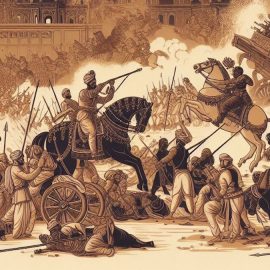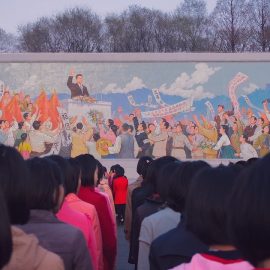

This article is an excerpt from the Shortform book guide to "Capital in the Twenty-First Century" by Thomas Piketty. Shortform has the world's best summaries and analyses of books you should be reading.
Like this article? Sign up for a free trial here .
What causes economic inequality? What is different about economic inequality now vs. before World War I?
Economic inequality is a growing issue today. In Capital in the Twenty-First Century, Thomas Piketty argues that high salaries for executives and managers are the driving forces for inequality.
Read more on how uneven salary distribution could be the leading cause of this imbalance.
Wages Are Driving the New Age of Inequality
Piketty writes that the history of economic inequality in the advanced economies of Western Europe and North America followed a distinct historical pattern—an era of high inequality in the period before World War I, followed by a significant compression of the wealth distribution in the decades after World War II, and a new age of rising inequality beginning in the 1980s and continuing to the present.
But he notes an important difference between the earlier period of massive inequality during the 18th, 19th, and early 20th centuries and the one we are living through today. Before World War I, a much larger share of the total income of the richest people came from ownership of capital assets—dividends, rents, interest on government bonds, and capital gains. So what’s causing economic inequality today?
(Shortform note: The 19th century in particular was an era of staggering inequality. In the PBS documentary The Gilded Age, the filmmakers observe that in 1897, the richest 4,000 families in America controlled as much wealth as the other 11.6 million American families combined. But, as Piketty argues, we may be returning to a similar economic paradigm. In November 2017, the three richest individuals in America were as wealthy as the bottom half of the population.)
Since the 1980s, however, he observes that the top decile and even the top centile’s income primarily comes from highly compensated labor. He argues that skyrocketing salaries for high-ranking executives and managers (most notably in the finance sector) are driving today’s inequality. In this respect, today’s wealthy are different from their predecessors of the 18th and 19th centuries. They are less a class of rentiers than they are a class of highly compensated salary-earners.
But regardless of its source, Piketty warns that the rich are only getting richer: In the US, the top decile increased its share of national income by 15 points, from 35 to 50% from the 1970s to 2010.
(Shortform note: We can see direct evidence of Piketty’s argument by looking at the extraordinary divergence between average CEO pay and average worker pay that has taken place in the US since the mid-20th century. In 1965, CEOs earned, on average, 21 times more than the average worker. By 1989, that ratio had nearly tripled to 61:1. And by 2020, a CEO at one of the top 350 companies in the country could expect to earn more than 351 times the salary of a typical worker. In total, from 1978 to 2020, CEO pay grew by an exponential 1,322%—more than the growth in the S&P stock market growth during that time and the relatively paltry 18% wage growth of the typical worker over the same period.)

———End of Preview———
Like what you just read? Read the rest of the world's best book summary and analysis of Thomas Piketty's "Capital in the Twenty-First Century" at Shortform .
Here's what you'll find in our full Capital in the Twenty-First Century summary :
- An analysis of incomes, tax returns, and estate tax returns across different countries
- How capitalism, by its nature, generates economic inequality
- How inherited wealth will soon account for more than earned income






